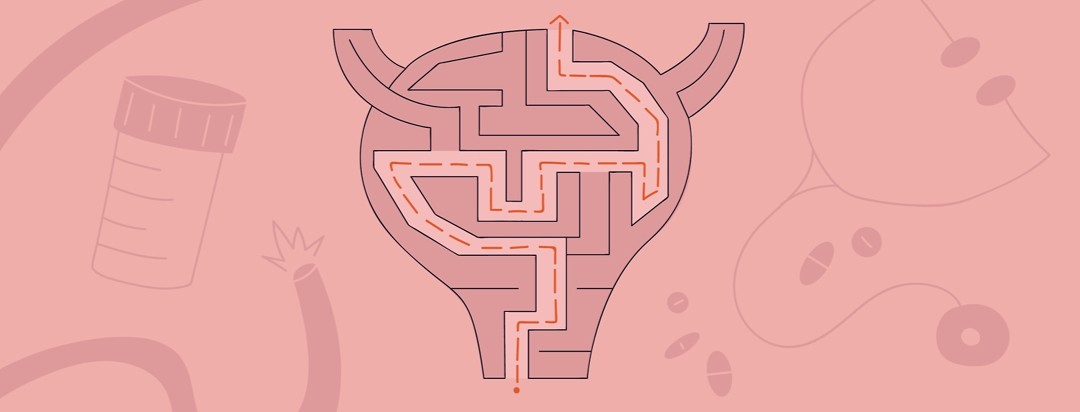The Only Way Out Is Through
When life is going well, it’s easy to forget the raw distress that a bladder cancer diagnosis (or even the possibility of a diagnosis) once imposed on our psyche.
I was reminded of this recently when a friend received “suspicious” findings on a mammogram. She had to go back for a more detailed scan and biopsy. And then back for an even more thorough biopsy. This played out over several weeks and has still not reached its conclusion.
"I just want this to be over"
“I just want this to be over,” she told me. “I don’t have the time or energy for cancer.”
Her frustration was compounded by her insurance company’s refusal to cover some of the testing.
My husband's cancer recurrence
All of this took me immediately – and vividly – back to April 2013. It’s as clear as if it happened five minutes ago. Bladder cancer had entered our lives in 2011, but we thought it was under control. My first husband had received regular monitoring. But the cancer came back without first appearing in the bladder. It went, instead, straight to the lymph nodes. This caused initial symptoms of its recurrence to be nontraditional: swelling in the leg without any pain. No blood in the urine, no back or side pain.
Seeing multiple specialists to try find an answer
And so, this mysterious symptom triggered a hamster wheel of visits to differing kinds of specialists: sports medicine and neurology, for instance. Nobody sent him to his urologist or an oncologist. But then suddenly, a CT scan revealed the cancer.
The news kept getting worse
And I just wanted it to go away. The news started rolling in and just kept getting worse. I was devastated. It was difficult to get out of bed for the first couple of weeks. I so just wanted someone to make this problem go away…and quickly.
It was in the unfolding of my experience as a caregiver to a spouse with metastatic bladder cancer that I realized just how much art there is in science. Yes, there are studies and clinical trials and the scientific method is upheld with great rigor.
Different treatments don't work for everyone
But the reality that we are realizing more each year, is that simply because a treatment works for a majority of patients doesn’t mean it works for everyone. That sense of wanting an answer – of viewing this as another problem for which American ingenuity and hard work should be able to offer a fix – is a feeling I suspect anyone diagnosed with cancer (or in close orbit of someone who was) can relate to.
The only way out is through
And the sense of just wanting it to be over. It’s that feeling of waking up and remembering something bad has happened. And it’s hanging over you. With more time, I came to accept that the only way out is through. Through the tests, the diagnoses, the many appointments, the research on and offline, the choosing of the right doctors, the choosing of the right treatments, the dealing with the side effects and uncertainty, the ongoing “scanxiety.” Through all of that is the only way to get to the other side. Putting one foot in front of the other each day.
I never quite knew what to say when people would comment, “I don’t know how you do it.” They were referring to a spouse with metastatic bladder cancer. My answer was, “What exactly are my options?”
There is no shortcut
In my case, getting through to the other side did not result in a happy outcome. I lost my husband to bladder cancer 11 months after his metastatic diagnosis. But for many, the other side is more hopeful and results in a cure or extended remission.
But, unfortunately, there just isn’t a shortcut to get there.
Community Poll
Have you taken our In America survey yet?

Join the conversation